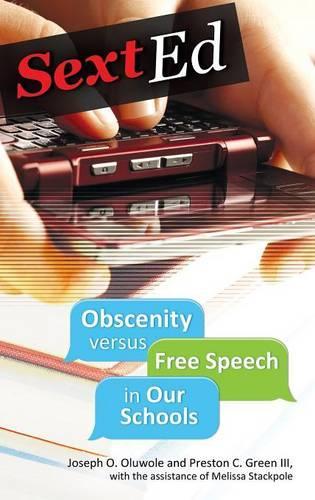
Sext Ed: Obscenity versus Free Speech in Our Schools
(Hardback)
Publishing Details
Sext Ed: Obscenity versus Free Speech in Our Schools
By (Author) Joseph Oluwole
Foreword by Eunice A. Grippaldi
By (author) Preston C. Green III
Bloomsbury Publishing PLC
Praeger Publishers Inc
9th May 2013
United States
Classifications
Tertiary Education
Non Fiction
Politics and government
363.4/702854678
Physical Properties
Hardback
400
Width 156mm, Height 235mm
794g
Description
Schools need to be able to regulate sexting, but at what point are administrators infringing on students' rights Is teenage sexting a violation of child pornography laws This book tackles these tough issues and others. In several states, teenagers who engage in "sexting" could be in violation of child pornography lawsand if convicted of such, teens could end up on sex offender lists with rapists and child molesters. The authors of this text examine this thorny issue, arguing that teenagers who have engaged in consensual sexting should not automatically be punished under child pornography laws. Equally important: the book presents in-depth analysis of the issue of school regulations on sexting pursuant to the Free Speech Clause. This book is the first volume devoted to the topic of consensual student sexting, and how the First Amendment may apply to this unique 21st-century phenomenon. It provides an overview of sexting laws in the United States and does a thorough job of discussing the First Amendment issues that all policymakers, educators, and child advocates should be aware of.
Author Bio
Joseph O. Oluwole, PhD, JD, is professor of education law at Montclair State University. He has also served as assistant attorney general for the state of Ohio. Preston C. Green III, JD, EdD, is Harry Lawrence Batschelet II Chair Professor of Educational Administration and professor of education and law at Penn State University.
